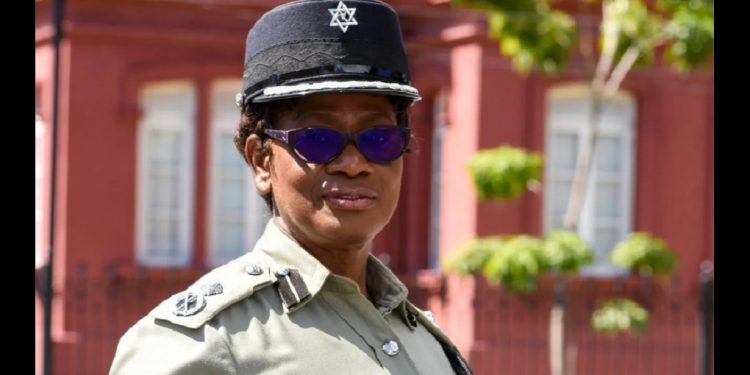Dear Editor,
In my opinion, having a female Commissioner of Police of Trinidad and Tobago was, in the beginning, truly inspirational for all women who aspired to become involved in law enforcement and gave hope that a different perspective might have led to better execution in the performance of the TTPS. For decades the masculinity that drove the Police Service has also led to numerous reports of extreme brutality, both on and off duty, that have led the public to become distrustful and paranoid. The question we must ask ourselves is why this has been allowed to continue unabated for so long and what might have been done to prevent the situation from becoming as bad as it is today.
During the meetings at Marlborough House when the founders of this nation were formulating our Independence Constitution, there was great debate about the ethnic composition of the police force and whether or not there should be quotas and percentages to prevent any type of racial prejudice. That said, there has never been a discussion regarding the inclusion of women in the police service and the advantages that having more female officers might present.
Seeing the recent recruitment drive in which thousands of male applicants were screened to have the opportunity to serve on the police force, at the same time that the head of the service is a woman was therefore bittersweet, to say the least, and demonstrated how, institutionally, nothing had changed. And the recent performance review conducted by the Joint Select Committee of Parliament confirmed the same.
But saying that nothing has changed just means that the status quo remains intact, and that is the underlying issue preventing any Commissioner of Police from really get a handle on the crime epidemic plaguing this nation.
While the six male members, who make up 75% of the committee that evaluated the current Commissioner of Police, were highly critical of the performance of Mrs. Harewood-Christopher, not one of them pointed a finger toward the government that has consistently starved the police of funding and resources necessary for actual progress to be made. I would happily tune into the next session of this Committee where they question the male Minister of National Security or the male Chair of the National Security Council, who have more power and control over the national security apparatus as a whole, as to how their performance might stack up against those that sat in their offices before them. Unfortunately, these types of Committee hearings are set up in a manner in which the heads of public entities are raked against the coals by the same government that set them up for failure.
One of the most poignant utterances made during the hearing was that the objectives set out were completely unreasonable. This came from the mouth of Mrs. Christopher in defense of the poor ratings and has been interpreted by all and sundry as an excuse rather than the fair and rational explanation that might have been more acceptable had it been uttered by male lips.
With the Prime Minister stating that it will take an entire press conference dated February 6 th to discuss this issue, I wait with bated breath for yet another male leader to add his voice to the baritone chorus that has been formed to harmonize the tragedy of Erla Christopher. Because even though there are those who believe that a Commissioner is fully responsible for the current state of the TTPS, I don’t know how realistic it ever was for us to expect that Mrs. Christopher could have turned it around in just one year when it’s performance across all objectives had been steadily declining over the past eight years. And though most women in powerful offices are expected to work miracles after the failure of their male counterparts before them, there are still limits that we must adhere to due to the divine nature of the universe we inhabit.
To single out Erla Christopher as a failure when her performance is no worse than those who came immediately before her is more of an indictment of the administration overseeing the TTPS than the individuals appointed to manage it. While writing this I had a chance to read an article in the Sunday Guardian detailing how the appraisal of Erla Christopher actually suggests that she has been more successful in the attainment of the goals set out before her within the first year in office than those who came before her. The question is therefore repeated as to why Erla is being singled out and criticized for her performance when her predecessors did not attract this level of vitriolic scrutiny. And if the answer to that is solely based on factors outside of her office, then really we need to look at our society to discover where the real problem might lie.
Sincerely,
Kavita Chotak.
BSc Criminology and Criminal Justice





































































